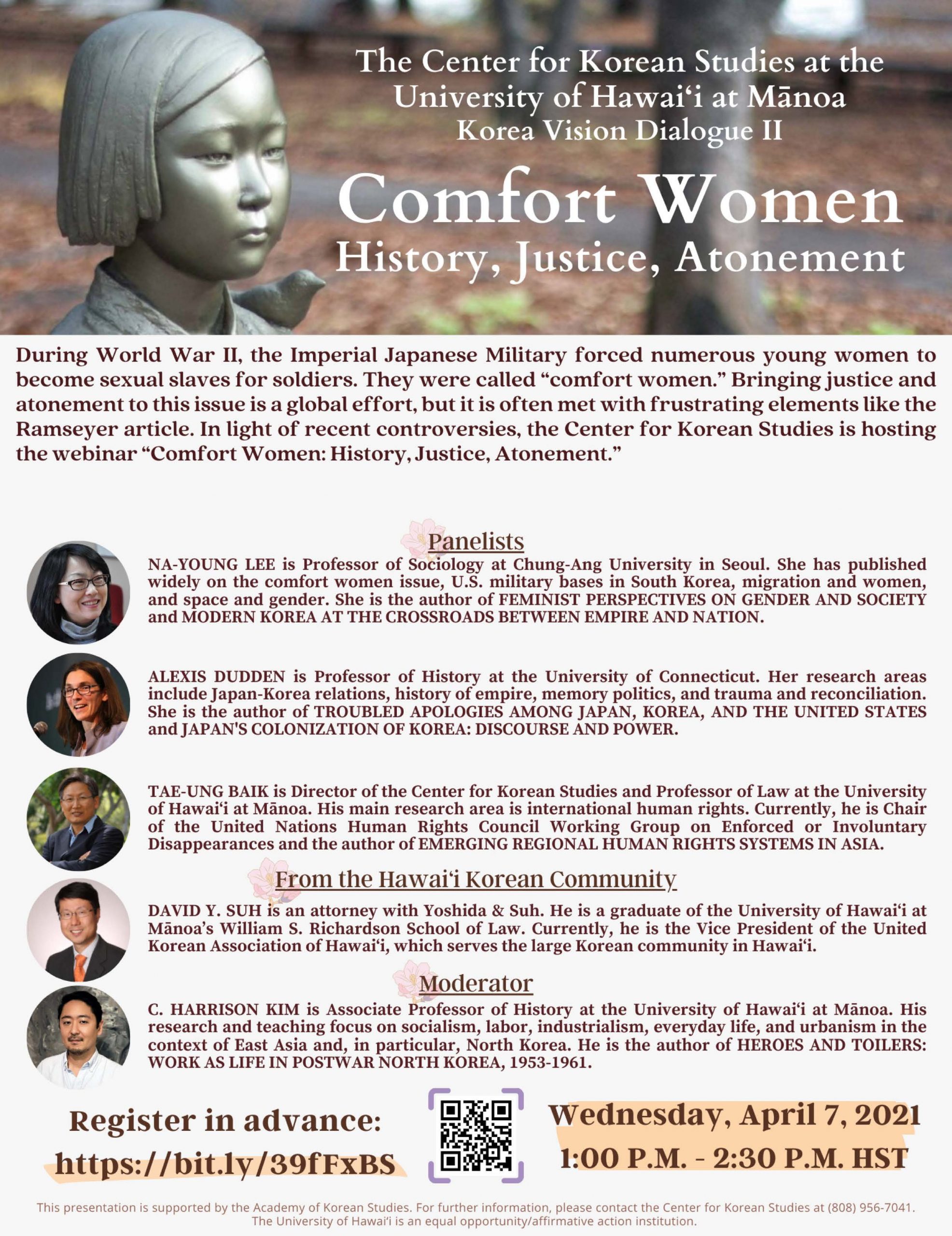
The Center for Korean Studies at the University of Hawai‘i at Mānoa presents
Webinar: Korea Vision Dialogue II - Comfort Women: History, Justice, Atonement
on Wednesday, April 7, 2021 at 1:00pm-2:30pm.
Please register in advance: https://bit.ly/39fFxBS.
During World War II, the Imperial Japanese Military forced numerous young women to become sexual slaves for soldiers. They were called “comfort women.” Bringing justice and atonement to this issue is a global effort, but it is often met with frustrating elements like the Ramseyer article. In light of recent controversies, the Center for Korean Studies is hosting the webinar “Comfort Women: History, Justice, Atonement.”
Panelists
- NA-YOUNG LEE is Professor of Sociology at Chung-Ang University in Seoul. She has published widely on the comfort women issue, U.S. military bases in South Korea, migration and women, and space and gender.
- ALEXIS DUDDEN is Professor of History at the University of Connecticut. Her research areas include Japan-Korea relations, history of empire, memory politics, and trauma and reconciliation.
- TAE-UNG BAIK is Director of the Center for Korean Studies and Professor of Law at the University of Hawai‘i at Mānoa. His main research area is international human rights. Currently, he is Chair of the United Nations Human Rights Council Working Group on Enforced or Involuntary Disappearances.
From the Hawai'i Korean Community
- DAVID Y. SUH is an attorney with Yoshida & Suh. He is a graduate of the University of Hawai‘i at Mānoa’s William S. Richardson School of Law. Currently, he is the Vice President of the United Korean Association of Hawai‘i, which serves the large Korean community in Hawai‘i.
Moderator
- C. HARRISON KIM is Associate Professor of History at the University of Hawai‘i at Mānoa. His research and teaching focus on socialism, labor, industrialism, everyday life, and urbanism in the context of East Asia and, in particular, North Korea.
